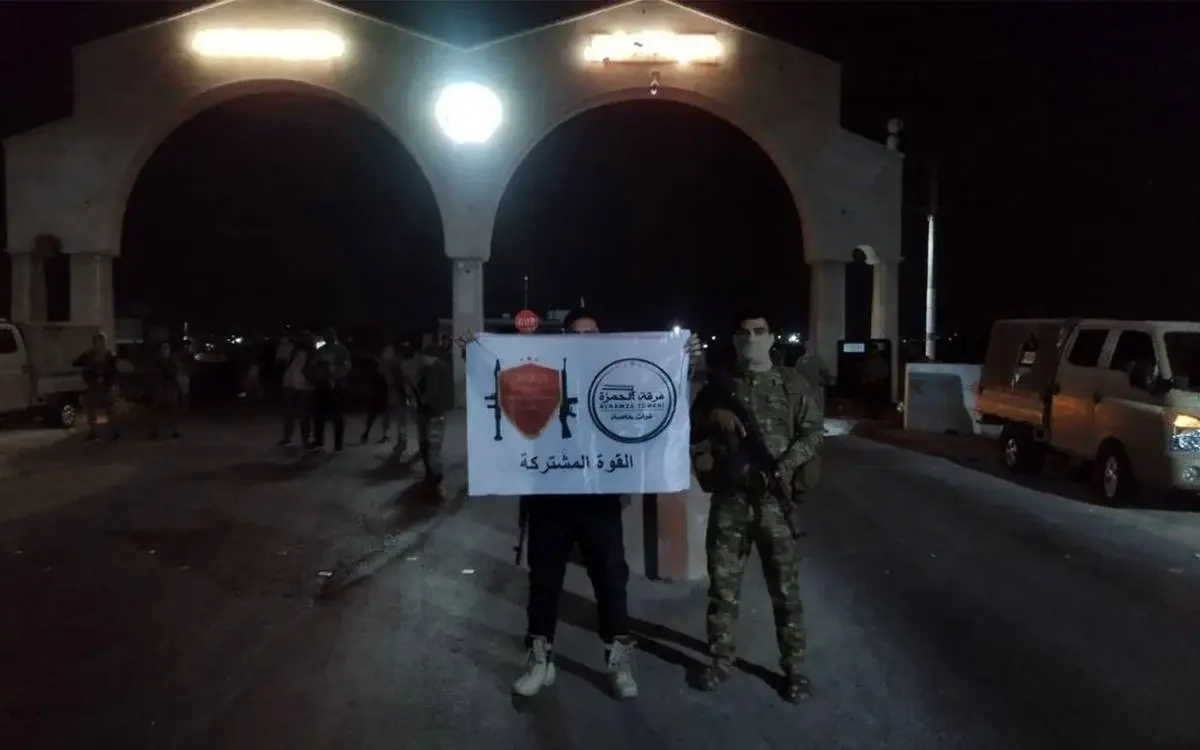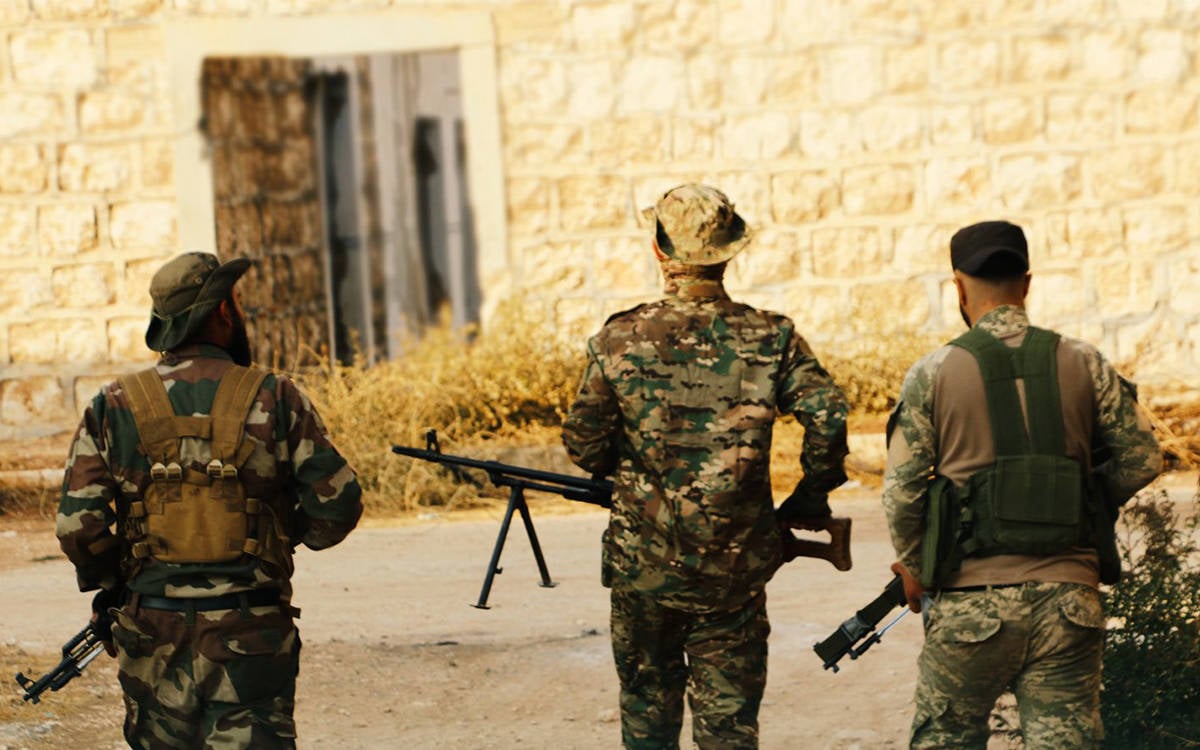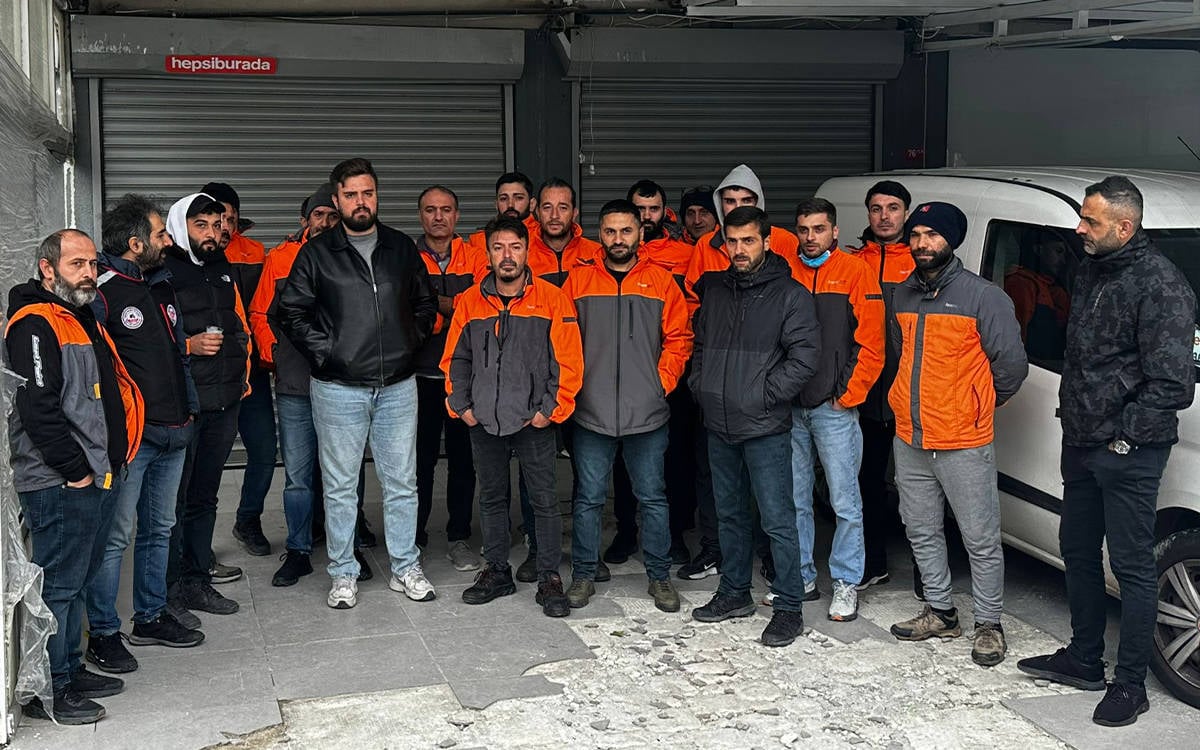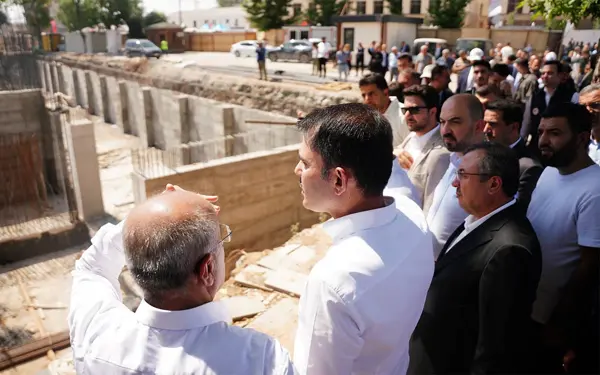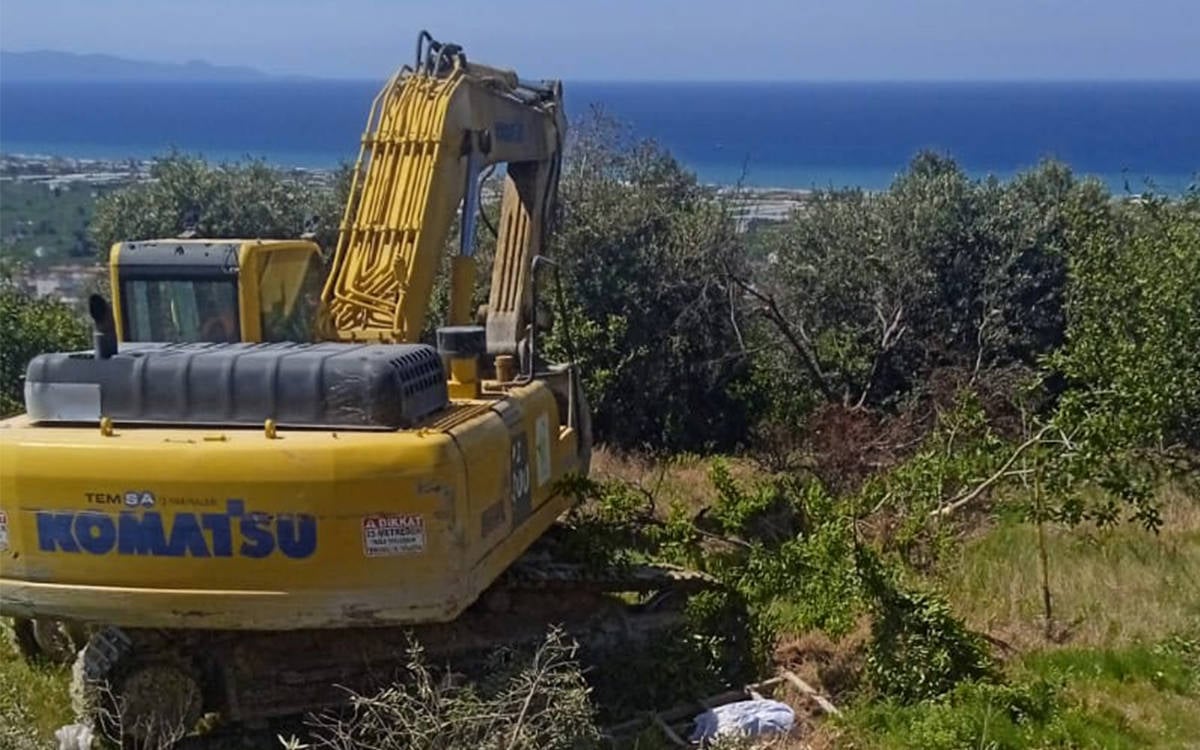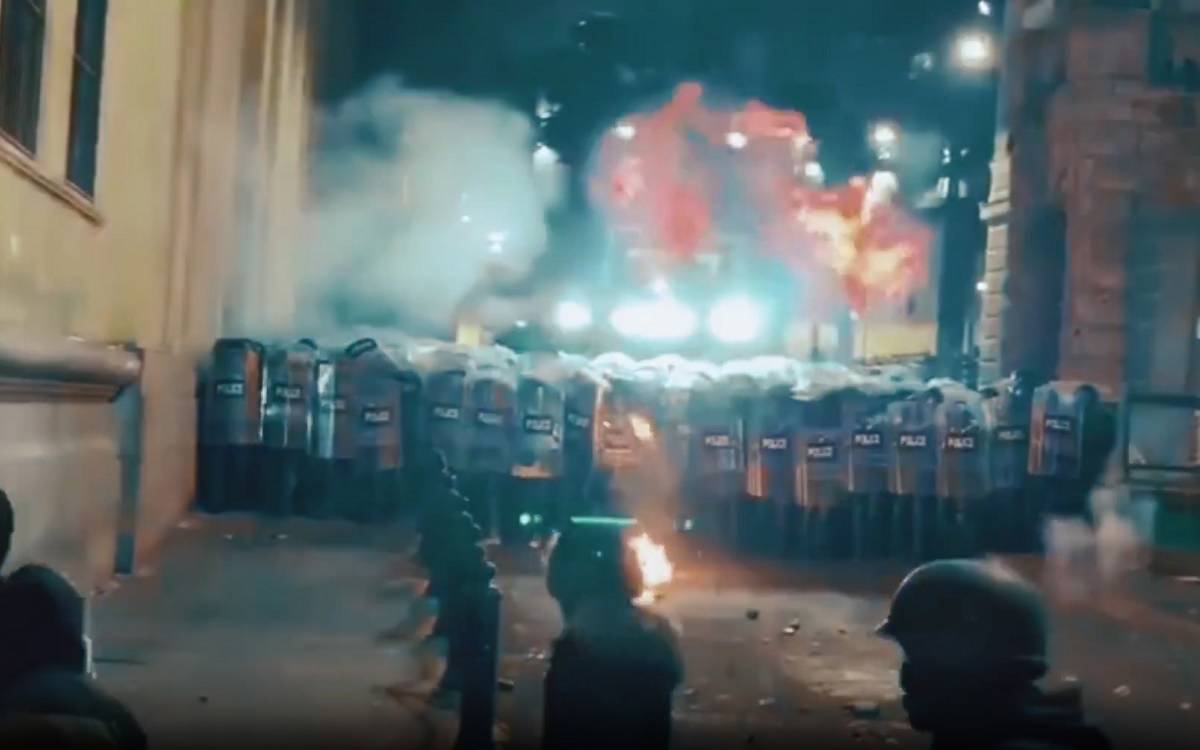The tension that had been simmering for some time between factions of the Syrian National Army (SNA), formerly known as the Free Syrian Army, escalated into violent clashes on the evening of Oct 16.
The fighting began when the Joint Forces, made up of Syrian Turkmen groups Hamza Division and Suleiman Shah Division, attacked the headquarters of the Northern Hawks Brigade (Suqour Al-Shamal) in the village of Hawar Kilis, near the Turkish border in Azaz. The clashes then spread across a large area in the rural parts of Aleppo.
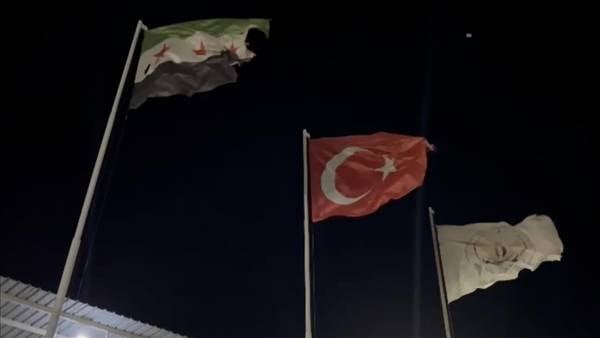
Clashes between Turkish-backed groups in northern Syria spark fire near border
The conflict intensified further when Sultan Murad Division, an ally of the Joint Forces, joined the fight alongside the Levant Front (Jabhat al-Shamiyah), which had recently decided to merge with the Northern Hawks. These clashes, taking place in the rural areas of Afrin and Azaz, saw the involvement of significant local factions.
The UK-based Syrian Observatory for Human Rights (SOHR) reported that fierce clashes broke out in the villages of Ali Karo (in the Bülbül district), Kimrok (in the Mabatlı district), Kafr Janneh and Katme (in the Sheran district), as well as in Hawar Kilis in Azaz. According to reports, the fighting, which involved heavy machine guns and mortar fire, created fear and panic among residents, with some homes being hit.
SOHR also stated that the Joint Forces acted on instructions from Turkey's National Intelligence Organization (MIT) in their attack on the Northern Hawks Brigade's headquarters.
Due to the ongoing clashes between SNA factions, Turkish Armed Forces (TSK) units stationed at the Kafr Janneh and Al-Gazawiyah base areas were placed on high alert.
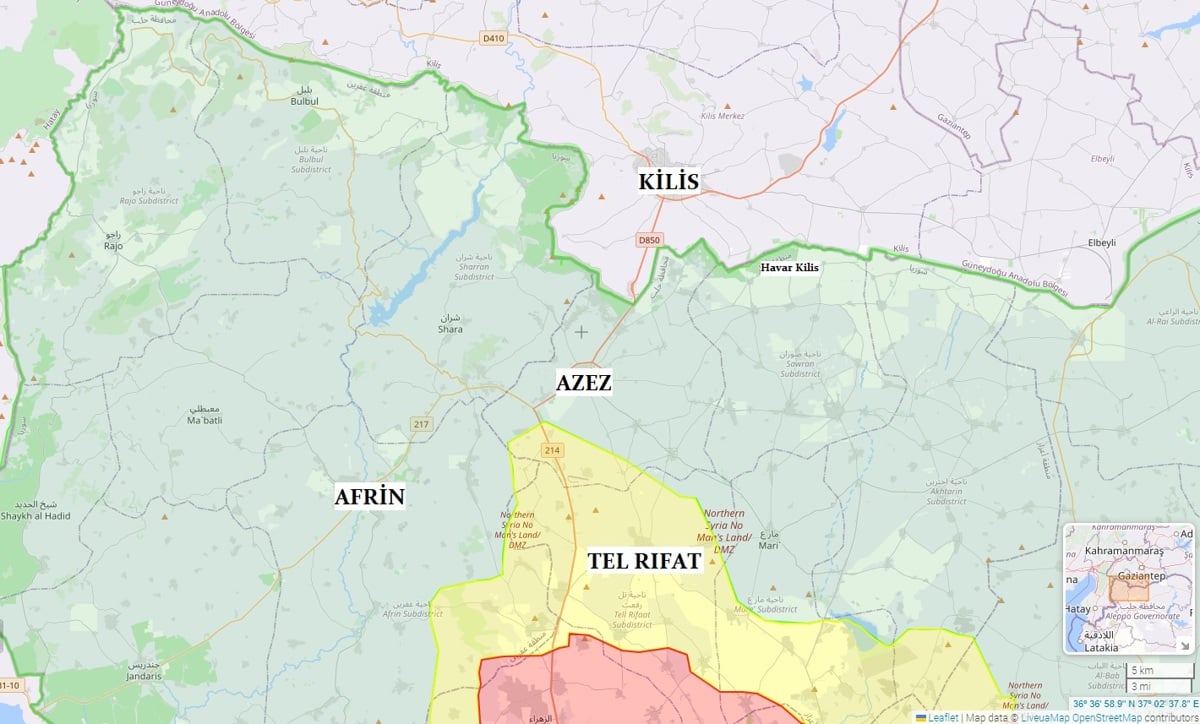
Background of the clashes
The spark for the clashes was the decision by the Ministry of Defense of the Turkey-backed Syrian Interim Government to dissolve the Northern Hawks Brigade on Sep 17.
While the dissolution was presented as part of a two-year-long plan to "restructure the SNA," the underlying reason was the group's failure to align with Ankara's strategic plans.
The Northern Hawks Brigade had opposed both the normalization process between Ankara and Damascus and the opening of the Abu Zandin crossing point near al-Bab. In response to the dissolution, the Northern Hawks took action and joined forces with the Levant Front on Sep 17.
The Levant Front is one of the most influential armed groups in northern rural Aleppo, particularly dominant in the Azaz region. This merger significantly altered the balance of power in the area and contributed to the escalation of the clashes.
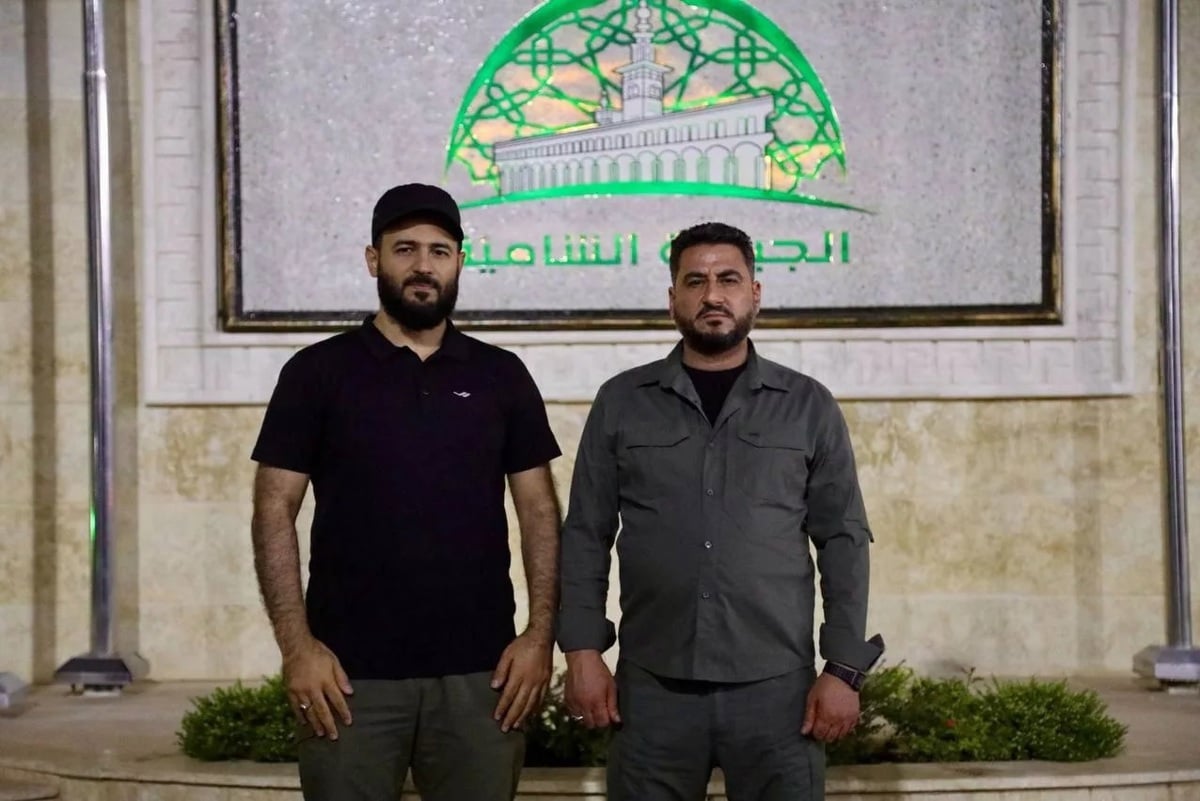
The "restructuring of the SNA" aims to dissolve smaller groups and merge them under larger military structures. However, this process has faced resistance, especially from groups engaged in power struggles over local interests and resources, such as smuggling operations.
In this context, which intersects with Ankara’s agenda of “normalization” with Damascus, the Levant Front has been one of the leading factions to raise the flag of rebellion.
In June, the Levant Front opposed the reopening of the Abu Zandin crossing, and on Sep 5, it announced that it was ending cooperation with Abdurrahman Mustafa, head of the Syrian Interim Government, in protest. Mustafa had accused the Levant Front of stealing revenues from the Bab es-Selame Border Gate, located across from Kilis, and of plunging the people of Azaz into chaos, turning the city into a “center of unrest.”
Temporary ceasefire
The exact toll of the clashes remains unknown. After the fighting, the factions declared a temporary humanitarian ceasefire.
However, the statements from the Joint Forces and the Levant Front reveal their priorities and current stances.
The Joint Forces emphasized their adherence to the decisions of the Syrian Interim Government and the Defense Ministry, accusing the Levant Front of "engaging in activities that threaten stability and security in the region."
Their statement conveyed two key messages that align with Ankara's position:
- "The Levant Front is fanning the flames of internal strife, further destabilizing the region."
- "Our preparations against the PKK/PYD terrorist organization and other terrorist formations continue, and the measures we are taking against them are essential."
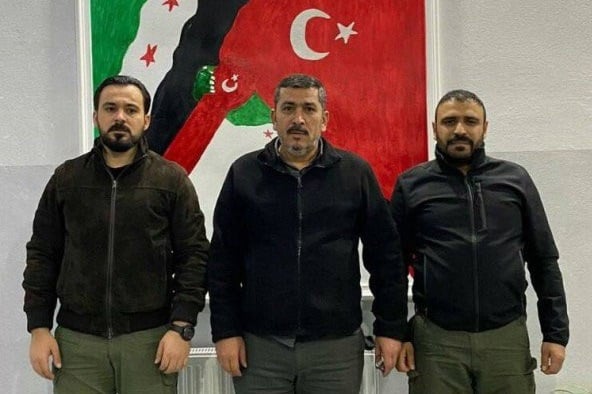
Meanwhile, the Levant Front claimed that they had made efforts to resolve the issues with the Northern Hawks Brigade, but accused the Joint Forces of "threatening peace and stability in the region for their own interests" and further complicating the situation with their recent "provocative activities."
Evaluating the purpose of these attacks as an effort to "delay the battle for Aleppo and weaken the revolution's resolve," the Levant Front stated:
"These groups’ actions serve the interests of the occupying Russia. The current disputes overshadow the struggle against the tyrannical regime (…) The Levant Front will take the necessary steps to counter these betrayals without straying from the path of the revolution."
Dissolution, but...
In a ‘surprise’ development later in the evening, the Northern Hawks Brigade announced its dissolution. The group declared that it was transferring control of its headquarters and territories to the Ministry of Defense "to prevent further bloodshed." A military police source, speaking to pro-opposition Aleppo Today TV, confirmed that buffer zones were being established in the rural areas of Afrin and Azaz, and all factions were pulling back to their respective headquarters.
However, there has been no statement yet from the Levant Front, which has made clear its opposition to Ankara’s strategy. It seems likely that in the coming days, there will be further attempts to purge this and similar groups, intensifying the clashes, with the potential for the Turkish military to be drawn into the conflict. (VC/VK)






